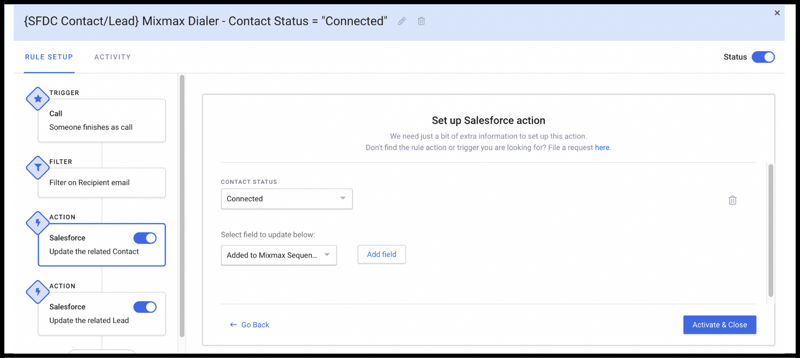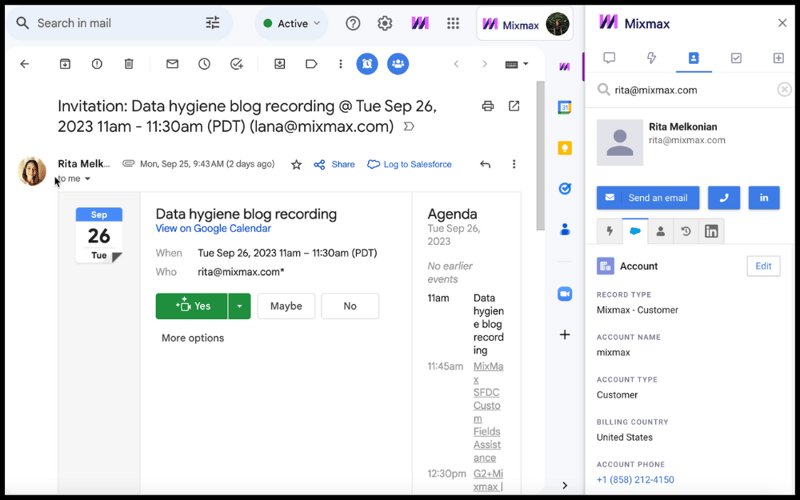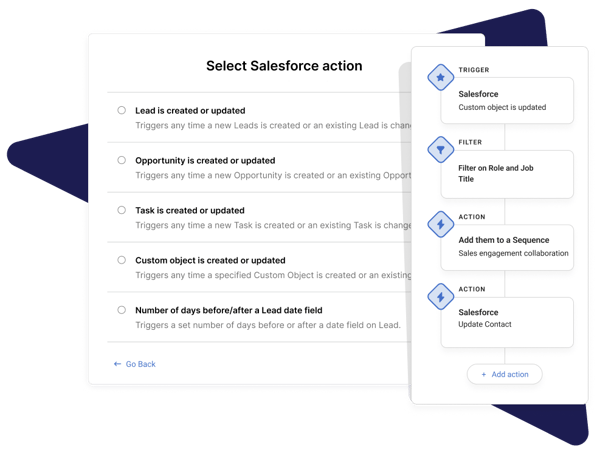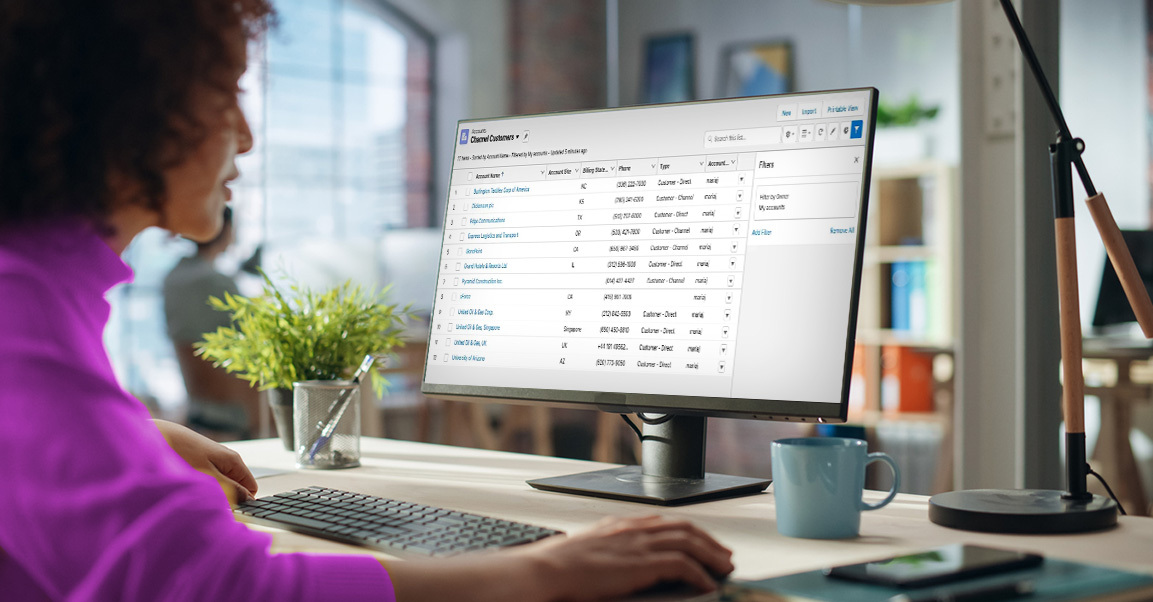CRM data hygiene is just a fancy term for keeping your prospect and customer data clean and making sure it’s accurate and up-to-date.
This is essential because, as sales development reps, account executives, and customer success reps, you rely heavily on this data to connect and engage with your potential (and actual) customers in meaningful ways.
Imagine calling a customer by the wrong name or contacting someone who's clearly not interested in your product anymore. Not only is it annoying and embarrassing for you, but it’s also irritating for the person you’re connecting with.

In this blog post, we’ll explore why having clean CRM data is important and share best practices that can help you and your team achieve it.
| |
What is data hygiene?
Imagine your Customer Relationship Management (CRM) system is like a digital address book on steroids. Data hygiene is the habit of making sure every name, number, email address, job title, and summary of the last communication in that book is correct.
It involves regularly checking and tidying up your contacts, so you don’t call Mr. Smith by mistake when you want to talk to Ms. Smythe.
It’s making sure all the information you have about your prospects and customers is accurate and up to date: There are no old phone numbers, no duplicate names, and updated info about previous communications.
This is essential for sales and customer success teams because when the list is clean, everyone can do their job properly.
Importance of clean CRM data
Here’s a breakdown of why clean CRM data is important for each role in a revenue team.
Sales Development Reps (SDRs): SDRs need the right info to reach out to potential customers effectively. With a clean address book, they won’t waste time calling wrong numbers, emailing inactive addresses, or bothering people who have made it clear they’re not interested.
Account Executives (AEs): Accurate info means AEs can better communicate with opportunities, understanding their specific needs, preferences, and pain points. This way, they can offer insight and deals that customers truly care about, increasing the chances of making successful sales.
Customer success (CS) teams: CS uses accurate data to offer help and support to customers when needed. With the right contact details and customer history, they can provide top-notch service, keeping customers happy and loyal, and (hopefully) avoiding churn.
Sales managers: Clean CRM data helps with efficient lead distribution among the sales team, with members receiving accurate and useful information. This accuracy is crucial not only for initiating first contact but also for nurturing leads through the sales funnel with personalized and relevant communication, which in turn drives successful conversions.
Revenue Operations (RevOps): Clean data ensures that operational processes from lead generation to deal closure are smooth and error-free. With reliable data, RevOps can make strategic decisions and optimize processes and tools to support sales teams.
Causes and consequences of dirty data
Errors happen! We’re all human (for now).
Sometimes, we input data manually, and it’s not always perfect, especially when we're rushing or multitasking. When entering data manually into CRM systems, it’s easy for these errors to slip through.
But these small errors can add up, leading to:
- Inefficiencies: When data is incorrect, you waste time double-checking information or reaching out to the wrong contacts, slowing down processes and making your workday harder.
- Missed opportunities: Dirty data means you might miss out on connecting with potential customers or providing current clients with the best service, causing lost sales and weakened relationships.
- Negative customer experiences: Customers can become frustrated if they receive information or offers that aren't relevant to them due to incorrect data, which can impact their view of your brand.
- Revenue loss: Ultimately, all these mistakes coming from unclean data translate to lost revenue, which hits where it hurts the most – your bottom line.
Taking care of the accuracy and consistency of the CRM data from the get-go helps prevent these pitfalls, ensuring a smoother and more profitable operation.
Quick tips on how to keep your CRM data clean with Mixmax's Head of RevOps, Lana Ma.
6 essential CRM data hygiene best practices
To avoid these issues, let’s walk through six best practices to keep your data in tip-top shape:
1. Automate data updates
Automating contact data updates is the easiest way to have the most accurate data in your CRM. But to achieve this, you need your CRM to integrate with other apps you use like your Sales Engagement Platform (SEP) and inbox.
For example, Mixmax (a SEP) that already lives inside Gmail also offers a seamless integration with Salesforce. That’s killing three birds with one stone (horrific image, we know).
If you’re using Mixmax, you can set up rules that automatically update the contact’s information and status based on specific actions. This way, you don’t have to worry about manually updating anything. Plus, all the information about the contact can also be accessed through Gmail via Mixmax’s nifty Salesforce sidebar.
 Salesforce Rules in Mixmax
Salesforce Rules in Mixmax
 Salesforce sidebar in Gmail via Mixmax
Salesforce sidebar in Gmail via Mixmax
2. Eliminate data silos
Data silos happen when information is isolated within a specific department or team, making it inaccessible to others. This hurts the free flow of data, making it hard for everyone to get the full picture.
Here’s why data silos are terrible for your organization:
- Limits accessibility: When data is trapped in silos, teams can't access all the information they need to make informed decisions or to have a comprehensive understanding of customers.
- Inconsistent: With multiple departments entering and using data differently, inconsistencies can arise, leading to confusion and mistakes.
- Reduces productivity: If you have to spend time searching for or requesting access to data in silos, it slows down processes and hurts productivity.
So how do you overcome data silos?
All teams can agree to adopt and use the same CRM system where all data is stored. This is the best way to make sure everyone has access to the same information.
If it’s not possible to get everyone on board with using the same CRM, then you can leverage integration tools that bridge that gap. But you have to make sure the integration is near-perfect, otherwise, you’ll be left with duplicate/inconsistent data.
|
|
3. Avoid duplicate data
Duplicate data usually occurs when the same customer or lead information is entered into the system more than once.
This repetition might happen for different reasons, such as:
- A lack of communication among team members
- Different team members interacting with the same client
- Errors during data import processes
- Your sales engagement platform acting like a second CRM instead of staying in its lane (we won’t mention which ones do this… but it ain't Mixmax).
Here's why duplicate data is a significant issue:
Inconsistency in communication: With two profiles for the same contact, future communications might become disjointed. If one profile is updated but the other isn't, team members might act on outdated or incorrect information, leading to potential misunderstandings or missed opportunities.
Inefficient resource utilization: Duplicate data means your team might waste time managing and updating redundant profiles, drawing precious time away from engaging with new leads or serving existing clients.
Compromised data analytics: When it’s time to analyze your sales data for insights and trends, having duplicate entries skews your data, making your analysis inaccurate and unreliable for strategic decision-making.
4. Run regular data audits
Performing regular data audits is like scheduling consistent health check-ups for your CRM data. It’s a proactive way to ensure your data’s accuracy, completeness, and relevance over time.
Data in your CRM system is dynamic; it constantly changes as prospects and customers move, switch jobs, change their contact information, or alter their preferences. Without regular checks and updates, your CRM data becomes outdated and loses its reliability and value.
A quick guide to data audits
Set a schedule: Depending on your business's nature and the volume of data handled, these audits could be monthly, quarterly, or biannually. The key is consistency.
Define accuracy metrics: Determine what ‘accurate data’ means for your business. Set clear standards and benchmarks that your CRM data should meet. This could involve verifying the accuracy of email addresses, phone numbers, job titles, and company names.
Identify and remove duplicates: As mentioned earlier, duplicate data can muddy your CRM’s effectiveness. Use your CRM system’s deduplication tools or other third-party applications designed for this task to identify and merge or remove duplicate entries.
|
|
Validate and update data: Check the validity of the data. For instance, are the email addresses still active? Are the phone numbers correct? Validate the existing information and update records as necessary to reflect the current, accurate data.
Archive outdated records: Not all data stays relevant forever. If certain data is no longer needed or relevant, consider archiving it. This step helps in decluttering your active CRM space, making it easier for teams to navigate and use.
5. Educate CRM users
If you’re a sales or RevOps manager, providing education and training to the folks who use the CRM system daily is a must-do.
Let’s unpack why educating CRM users about data hygiene makes a significant difference.
- Prevents a mess before it starts: If every person who uses the CRM knows how important it is to enter data correctly from the beginning, there’s less chance of having errors and duplicates.
- Shares responsibility: When everyone knows how crucial clean data is, maintaining it becomes a shared goal. It’s not just “someone else’s job” to fix errors; it’s everyone’s job to prevent them.
- Boosts efficiency: With proper training, using the CRM system becomes second nature to everyone, making the whole process of entering and using data more efficient and stress-free.
6. Encourage feedback mechanisms
Creating channels for feedback about the CRM data handling processes is a good idea for ensuring the system’s efficiency and accuracy over time.
Here’s why feedback matters:
- Helps identify issues early: Feedback from users can help identify and address any issues or challenges in the CRM data management process early. This proactive approach prevents small problems from becoming big headaches down the line.
- Ensures data accuracy: Continuous feedback helps maintain the accuracy and integrity of the data. Users who engage with the data daily can provide valuable insights into any discrepancies or areas where the data quality can be improved.
- Fosters collaboration: A feedback mechanism promotes collaboration and collective responsibility among team members to maintain clean and reliable CRM data.
Tools and technologies for clean data
In case you missed the not-so-subtle clues, Mixmax’s sales engagement platform is an excellent tool for salespeople and customer success teams who want to have clean CRM data without having to put in the (tedious) manual effort.
 Create easy workflow rules to update statuses, notify teammates, and automate follow-ups.
Create easy workflow rules to update statuses, notify teammates, and automate follow-ups.
With its integration with Salesforce and G-Suite, the three platforms communicate seamlessly, and all account updates are automated. Plus it doesn’t duplicate any data since Mixmax complements the CRM instead of trying to take over.
You can try Mixmax for free here.
If you’re a Hubspot user, you can check out their data cleansing guide here.
|
|
Wrap-up
CRM data hygiene is super important if you want to have accurate information about your prospects and customers.
Here are the key takeaways from this post:
- Accurate entry matters: Punching in data accurately from the get-go sets the stage for a smooth, error-free experience down the line. Automating this with a tool like Mixmax that integrates with your CRM is the way to go.
- Say no to duplicates: Duplicate data is a headache you don’t need. Communicate with your team to avoid this.
- Audit regularly: Schedule check-ins and clean-ups of our data to keep it fresh and reliable.
- Break down silos: Tear down those walls that keep valuable data locked away. Sharing is caring—and also super efficient.
- Give feedback: Create an environment where feedback is encouraged. This will help your team spot and fix issues quickly, keeping your data game strong.
- Training for the win: Get trained (or train your team) on keeping data clean and organized.











